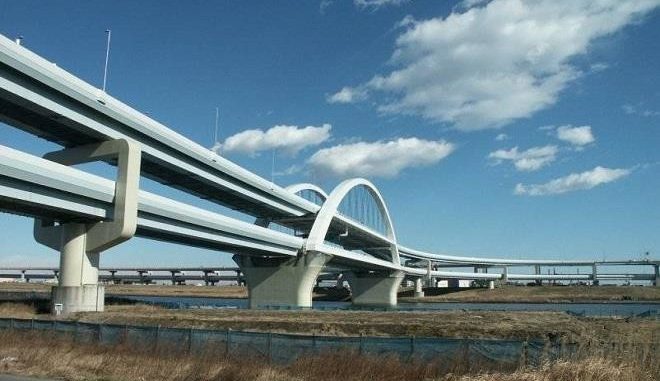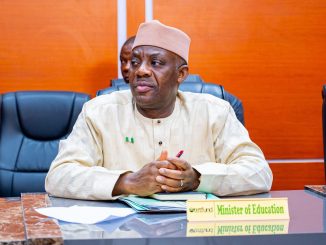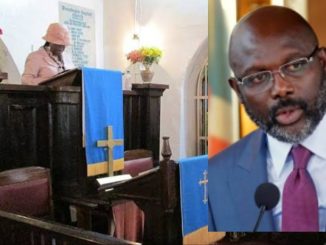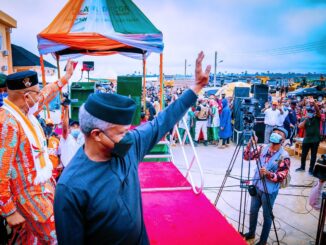
The Lagos State Government has said it is proposing the sum of $2.2 billion for the construction of the 37.4 kilometres 4th Mainland Bridge.
Governor Babajide Olusola Sanwo-Olu, disclosed this on Tuesday at the first stakeholders meeting on Environmental and Social Impact Assessment (ESIA) for the bridge held at Adeyemi Bero Hall, Ikeja.
He informed that, upon completion, the bridge would have 2 x 4 lane carriageway cross-sectional road with allowance for BRT Lane and future road expansion.
Sanwo-Olu, represented by his deputy, Dr Obafemi Hamzat, said, the event is very significant in the state’s joint effort to change the narrative of the socio-economic development of the state through the provision of critical infrastructure for sustainable prosperity.
As stated, when completed, the bridge would also become the longest Bridge in Africa second only to the October 6th Bridge in Cairo, Egypt, featuring three toll plazas, nine interchanges, 4.5Km Lagoon Bridge, Rest and Service Areas and an eco- friendly environment amongst other added features.
Sanwo-Olu, however, added that, 800 houses would have to be demolished when construction begins against the 4,000 houses earlier marked for demolition in the previous design before it was realigned.
He explained further that, the freeway bridge is subdivided into three sections namely Island Section, Lagoon Section and Mainland Section, while it starts at the Abraham Adesanya Roundabout in Lekki where a “free flow” interchange will be constructed as well as some traffic flow alterations to the existing Lekki–Epe Expressway so as to maintain traffic movements during construction.
Sanwo-Olu said that the 4th Mainland Bridge project was deliberately included during their electioneering campaign as a key deliverable in their manifesto, and now, his government decided to upgrade the project and develop a method to deliver “this strategic piece of highway infrastructure and have since left no one in doubt about our commitment to ensure that this project becomes a reality.”
ALSO READ: VP Osinbajo committed to ideal of one indivisible Nigeria — SGF, Boss Mustapha
He noted that, the history of the 4th Mainland Bridge project goes back almost 15 years when it was first raised due to the ever-decreasing efficiency of the existing 3rd Mainland Bridge in addressing the transportation needs of a growing population.
The 3rd Mainland Bridge, he said, was the first real piece of strategic infrastructure deployed in Lagos Metropolis and the proponents and developers of that project should be commended for their vision. Lagos today without the 3rd Mainland bridge is simply unimaginable.
The governor stressed that engagement and consultation on Environmental and Social impact assessment is a precursor to the third step which will involve issuing a “Request for Proposal” (RfP), to the six Consortia who will be required to present their respective financial proposals and methodologies for carrying out the project. It will be concluded with the selection of the “Preferred Bidder” and “2 Reserved Bidders.”
While urging stakeholders to use the meeting to consult amongst themselves on the steps to take in order to remove all the bottlenecks that may impede the delivery of 4th Mainland Bridge, he said, all the components of Lagos mobility must be considered, including road planning, public transport integration and urban freight;
Likewise, he said there was the need to strengthen the current radial commuting connections towards Lagos urban core and the establishment of transversal connections that will serve both long distance traffic (avoiding the metropolitan traffic) and also other connections within the Megacity which are not Lagos bound.
The governor, however, assured Lagosians that, the proposed 4th Mainland Bridge project has been well integrated into the overall Lagos Master Plan in relation to Transportation Infrastructure. The project allows for the first time “direct access” from the large suburb of Ikorodu to the Island and the Lekki Free Trade Zone area.
Meanwhile, much earlier before this latest meeting, Hamzat, had informed that the construction of the 4th Mainland Bridge will start in the first quarter of 2021.
Hamzat said this during a recent discussion on Babajide Sanwo-Olu/Obafemi Hamzat’s administration in the last one year on an online show tagged: ”Covinspiration,” a show moderated by Dayo Israel, a UN Special Representative and British Council Global Change-maker.
Hamzat noted that the 4th Mainland bridge was central to the present administration as the state was aggressively pursuing various infrastructural renewal programme to make life abundant for the residents.
The deputy governor said the bridge was an important programme for the administration, saying that its completion would help break traffic gridlock and ease transportation in the state.
He said: “The project is key for our administration and we flagged the construction of regional roads within VGC two days ago, the project has been awarded to Hi-Tech Company.
“First Quarter of next year (2021), we will be able to start. Early next year, construction will start on the 4th Mainland Bridge.
“Regional Road is to be done for the survival of the Fourth Mainland Bridge to help us break away traffic from the Lekki-Epe Expressway. Regional road will increase the viability of the 4th Mainland Bridge.”
According to him, that there is hope that by November or December, plans will have been concluded for work to begin.
According to him, 32 Consultiums put in interest in the bid and the government had been able to reduce them to nine.
He described the project as huge, which would involve a lot of money, adding that the government was looking for partnerships with private organisations.
Hamzat, who noted that the government had been funding aggressively road infrastructure, said that the Lagos–Badagry Expressway would unlock the tourism potentials in Badagry.
He assured that the administration will continue to grow better, especially in terms of infrastructure while also dealing with deficits.
Speaking on the management of traffic in the state, the deputy governor said that the administration had been able to reduce traffic jam by 15 per cent to 20 per cent.
“In order to expand roads and give room for free vehicular movements, we have been able to remove some of the roundabouts which include Allen Roundabout, Ikotun Roundabout, Lekki, Abraham Adesanya Roundabouts are all gone.
“We are fixing major roads and reducing traffic congestion and making sure that drainages are cleared,” he said.
Hamzat said that the government was commited to mass transportation, saying that Oshodi-Abule Egba, BRT corridor would soon commence for mass movement along the corridor.
According to him, the government is also “funding aggressively” the Blue Line Rail for mass movement of people.
He said that 600 buses procured by the government had been cleared at the port, saying that the government was also procuring small buses for its ‘Last Mile’ transport programme.
Hamzat said that the government was working to have the buses manufactured in the state to create employment for the residents.
On water transportation, Hamzat said that the government had procured ferries to move people along the waterways.
The deputy governor said that the Okada ban had not only reduced Okada-related accidents from about 21 monthly to one, but had also reduced crime rates in the state.
“Before the ban, on the average of 21 lives were lost monthly to due to Okada accident but after the ban it has reduced drastically to one.
“Crime has also reduced in the state, the NDLEA (The National Drug Law Enforcement Agency) report says that narcotics are transported through the use of Okada as a means of transportation.
“There was need to ban Okada, especially at this period with the outbreak of COVID-19. There is no way one can maintain social distancing on Okada,” he said.
The deputy governor emphasised the need for data for efficient planning and delivery in the state, saying that data gathering would allow transparency, planning and efficient record keeping.
“It (data) is the new currency for us and it drives all that we are doing. We should be able to have a database in order to manage the citizens better. Data would help for proper planning and documentation purposes.
“For example in education, there is the need to check the number of population in each area in order to plan accordingly. It makes the system run faster and more efficiently.
“Data is key, that is why we are pushing LASRA (Lagos State Residents Registration Agency) to get information about our citizens. It is also necessary for us to have robust data governance and protection,” he said




